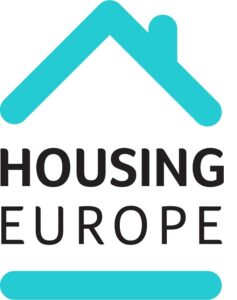Allowances for low-income households – Lithuania, Slovakia, France, the Netherlands

Several programmes have been successfully launched to provide financial support to low-income people to compensate for renovation and energy costs. The “Habiter Mieux” (Better Living) programme was created in France in 2010.
Description
The aim was to complement existing finances for energy renovations, with a specific focus on low-income households; at the beginning it was aimed at people who are over 60 years of age.
The programme included several tasks, such as a global diagnosis of the home to make recommendations on which improvements should be done, a proposal of a renovation package that allows for an energy-efficiency gain of at least 25 per cent, an energy evaluation before and after the renovation, assistance for searching professionals to realize the work, financial coordination of the renovation, especially mobilization of the different assistance schemes, and help with the follow-up of the renovation and acceptance of work. The programme was supervised by the National Housing Agency and managed at the sub-regional level. Interestingly the programme has been funded jointly by public funds and utilities.
Allowances can also be in the form of interest rate subsidies for investments made by homeowners or landlords renovating their homes to achieve energy efficiency. For example, Lithuania has created a fund called the Jessica II Fund for Multi-apartment Building Modernisation,[1] which is operated by the European Investment Bank; it offers favourable credit options for house-owner associations.[2] The State also offers subsidies, at a fixed annual interest rate of 3 per cent (up to 20 years) with a two-year grace period during construction. Fifteen per cent of the subsidy is written off if 20 per cent savings are attained, the energy efficiency Class D is achieved upon completion, and 100 per cent of the costs to prepare the renovation documentation are reimbursed (paid from national funds). Eligible costs include the replacement of windows and doors, the insulation of ceilings/roofs or walls, the installation of solar panels, and the replacement of energy-related equipment.
After the introduction of the fund, corrective measures had to be introduced to increase its attractiveness. The most important measures included: an extra 25 per cent written off if savings reach 40 per cent; the municipalities being instructed to draw up lists of the worst-performing buildings; only the majority of apartment owners (not all) having to agree to join the programme; and a gradual phase-out of heating bill compensations.
For tenants, rent allowances or rent supplements can also assist with energy costs or increased rents due to renovation.
Another innovative scheme that was introduced in the Netherlands, is called Energisprong[3] (Energy Leap), which focuses on social housing. It aims to fund investments in retrofitting through bill savings, ensuring no net additional cost to tenants. Instead of paying their energy bills, tenants pay a similar amount to the housing associations. Using this money, the corporations pay building companies to retrofit the houses, which have developed “industrialized” renovation procedures that are highly cost-effective. The key to the scheme is that it is an area-based approach, using retrofit technology that can be introduced rapidly. The building stock lends itself to this approach due to its homogeneous nature. The scheme has grown significantly since the initial Dutch case studies. It is now used in five EU nations and two States of the United States, with further countries on the horizon; it has the potential to become one of the most important mass renovation tools in the coming years, as part of the EU renovation wave. Significant new Energiesprong investments have been announced in France, and it also features in the national renovation plan of France.
Scale
National
More information
[1] Buildup EU, “Jessica II Fund for Multi-apartment Building Modernisation in Lithuania”, 24 October 2018. Available at https://www.buildup.eu/en/practices/cases/jessica-ii-fund-multi-apartment-building-modernisation-lithuania (accessed on 23 November 2020).
[2] European Investment Bank, “Lithuania: New financing for energy efficiency loans with Siauliu Bankas”, 3 January 2019. Available at https://www.eib.org/en/press/all/2019-001-new-financing-for-energy-efficiency-loans-in-lithuania-with-siauliu-bankas (accessed on 23 November 2020).
[3] For an outline and video of this initiative, see https://energiesprong.org/about/ (accessed on 23 November 2020).

An initiative of:


